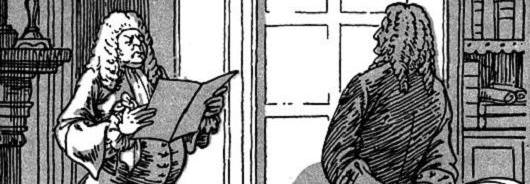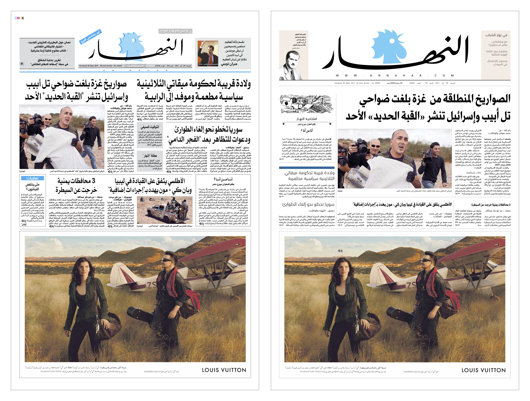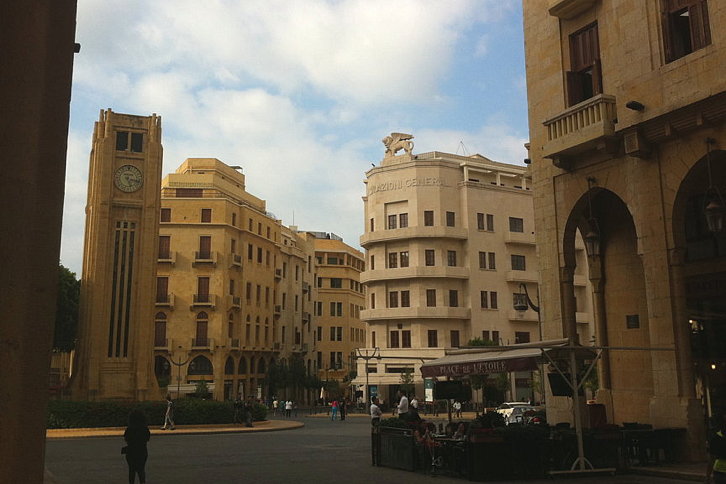Lebanon
About Andrew Cusack
 Writer, web designer, etc.; born in New York; educated in Argentina, Scotland, and South Africa; now based in London.
Writer, web designer, etc.; born in New York; educated in Argentina, Scotland, and South Africa; now based in London. read more
News
Blogs
Reviews & Periodicals
Arts & Design
World
France
Mitteleuropa
Knickerbockers
Argentina
The Levant
Africa
Cape of Good Hope
Netherlands
Scandinavia
Québec
India
Muscovy
Germany
Academica
Articles of Note: 3.II.2022

“Lebanese money was worth more and there was more to eat when militias were fighting each other in the streets of Beirut 40 years ago than there is today.”
One of the great ironies of Lebanon’s current decline (Fernandez points out) is that, as destructive as the Civil War was, the country’s hopes were finally crushed by bankers and politicians rather than warlords.
— A bumper from The European Conservative: Tim Stanley says “Stay away from politics!” (I couldn’t agree less: we need brighter people involved!)
■ Idealists in Europe refusing to bow to reality have provided false hope to countries that have no real prospect of becoming members of NATO or the EU.
Damir Marusic muses on the Ukraine in How Not to Bend the Arc of History.
■ I ran into my friend João at a dinner party last night and he described the very existence of Brazil as “the greatest thing Portugal ever did”.
In 2018, Americas Quarterly claimed the now-deceased Olavo de Carvalho was the most important voice in Brazil’s then-incoming government (even though he didn’t live there).
More bizarrely fascinating is Nick Burns’s 2019 article on Bruno Tolentino, Carvalho, Ernesto Araújo, and the origins of the new Brazilian right.
Brazil’s foreign minister “penned an eyebrow-raising article for Bloomberg in which he blamed Ludwig Wittgenstein for Brazil’s debility on the world stage”.
If you’ve never lived in Latin America (I claim to have been at least partly educated there) you will never really understand quite how different it is.
■ When Algeria became independent, President Ben Bella had spent so long in French prisons that he had almost forgotten his Arabic.
One million French Algerians left within months, as American diplomats in Paris and Algiers at the time recall.
French Algerians “not only controlled the whole private sector, they had all the top government positions, and more importantly, they filled all the minor positions. The guy who read the gas meter in the utility company was a Frenchman. The women who worked the switchboard in the telephone company were all French. So the economy just came to a screeching halt.”
— Ex Africa semper aliquid novi: A new documentary (watchable online) explores Algeria under Vichy while another looks at Jacques Foccart, de Gaulle’s “Mister Africa”.
■ I am not much of a “Substack” aficionado, but I have recently given in and signed up to receive The Postliberal Order in my inbox. It’s penned by the quadrivirate of Vermeule, Deneen, Pappin, and Pecknold — all of whom have become household names in Cusackistan.
Patrick Deneen’s latest contribution on emerging postliberalism amidst the political persuasions of his students is worth a read.
Les jours heureux du Liban
Being an omnivore of nations I’m not short of favourite countries, but the Lebanon is towards the top of my list. I’ve spent some weeks there each summer for the past few years and we’re hoping to return this July (God willing). Friday night B. invited a few of us round for an impromptu supper and in the kitchen I happened to mention that I had met his ambassador the day before — the Lebanese ambassador.
This provoked a lament on B’s part as he relayed the history of his family’s service in the diplomatic corps and of Lebanon in the old days: black-tie dinners, summer in the mountains, the casinos and the glamour of the Beirut he was born too late to experience.
It’s become a cliché for foreigners to cite Beirut’s former glory as ‘the Paris of the Orient’ and Lebanon ‘the Switzerland of the Middle East’. Civil war wreaked its devastation on the country but its revival in more recent years has still been remarkable. Everything, of course, is exceptionally tenuous, but despite the clouds of uncertainty there remains a lot for which to be grateful.
We both wished, however, that today’s ordinary culture in Lebanon was a bit more informed by the style of the past. While old buildings are often restored, far too many of the new buildings are horrendously bland or offensively modern. Perhaps most unfortunately, a large proportion of Lebanon’s women — already endowed with a natural beauty unparalleled in the Middle East — are too mimicking of American styles: nosejobs and dyed blonde hair.
For my part, however, the conversation provoked a little dip into the photographic archives, seeking out some images of Lebanon in its halcyon days. (more…)
Into the Qadisha Valley
THE HOLY VALLEY cuts down like a gash in the earth, with the cathedral city of Bcharré on the clifftop, almost hanging off of it. One almost wonders if you started building at the other end of the town, it might force St Seba’s Cathedral off over into the deep beyond. There is something almost Lord of the Rings about the setting, a Levantine Minas Tirith, if only Tolkein had been a Maronite.
The Qadisha Valley (Ouadi Qadisha, وادي قاديشا, literally the “Holy Valley”) takes its name from the Aramaic word for saintly and for over a millennium its natural caves have provided shelter for hermits seeking solitude as well as others seeking refuge and safety. Evidence of human habitation dates back to the Paleolithic era, and the Qannubin Monastery here is said to have been founded by the Emperor Theodosius the Great in the fourth century. While this is the holiest ground of the Maronite Catholics, hermits living in these caves and in these monasteries have been Melchite, Nestorian, Armenian, Syrian Orthodox, and Ethiopian. When the Monastery of St Maron was sacked by Antiochene Monophysites, many monks fled to the Qadisha Valley, strengthening the presence of this Eastern church which has always remained in communion with Rome. For over five hundred years, the Maronite patriarch made Deir Qannubin his seat. (Since 1830 the Patriarchate has been based at Bkerké above the pleasant Mediterranean city of Jounieh). (more…)
Lebanon Diary
Early evening sun illuminates the pendentives and architraves of the Maronite church. Discoloured prints of numerous saints — of East and West — crowd one of the few side altars. The Arabic numerals indicate the date of its dedication: 1971 — before the war.
Without internet in a remote village in northern Lebanon, elevation 500 ft, we are cut off from the outside world. Word reaches us of a military coup in Egypt. (I hate missing a coup!) The reactions are a mixture of relief and caution, and a little wonderment at how things must have moved very quickly. Curiosity is sparked as to what else is going on in the world outside Sourat.
Dappled sunlight. Unfamiliar saints. A lizard scurries past, its long processional tail trailing behind it.
D.G. of the Financial Times drops in and brings that commodity we most desire: news from elsewhere. I quiz him on the coup in Egypt, how it played out, how it was orchestrated, and what he thinks of it, but there is little time.
At night, reading Ian Fleming’s From Russia With Love on the terrace with a Gauloise and a bottle of Almaza. Two wolves cry in the distance and I remember hearing the snorting of a wild boar a few nights previous. One chased Emmanuel on his way back from ‘the Palace’ (as we have dubbed the Abouna’s house, where the honoured guests stay) and was shot and killed — the photos of the quarry being displayed on an iPhone handed round.
The night is punctuated by the sound of repeated explosions in the distance. Luckily these are fireworks — a particular Lebanese obsession. It seems symptomatic of the Lebanese mentality that — having spent so long being so close to death — it is necessary to celebrate being alive. One may as well have a good time, and the Lebanese are experienced at having a good time.
In the car on the way to the pharmacy, Mahe our indispensable handyman (and a refugee) talks to Niall about Syria. “Syria. Big war. Boom boom. Muslims fight Assad. Assad fight Muslims. Big war.”
BUILD! BUILD! BUILD! Beirut is abuzz with cranes and construction and wood boarding over the site of new projects. That tower wasn’t there last year, was it? No. And doubtless by next year new spires will scrape the sky over St George’s Bay, where the saint slew the dragon. Is he dormant there beneath the waters still? Something lurks perpetually beneath the Lebanon, occasionally raising its head above the surface in open violence. Just then a Hezbollah building in the southern suburbs is bombed. The list of assassinations in this country’s history is long and depressing, from that of Maarouf Saad which (arguably) sparked the fifteen-year Civil War, and of course the former prime minister Rafik Hariri’s killing in 2005. Even since Hariri’s death, no fewer than twelve Lebanese public figures have been assassinated.
Have you ever been to Rafik Hariri’s tomb? It’s a slightly vulgar thing, still shrouded in its temporary marquee, giving it a somewhat transient feel, as if it might up sticks and away to Sidon or Tripoli at a moment’s notice. We nipped in the other day after a trip to the adjacent mosque he had built, completed in 2007 with its brilliant blue dome. The mosque’s design is traditional but not entirely perfect. The massive crystal chandelier hanging from the vast central dome is impressive but perhaps a bit much. Somehow, we are deprived of ancillary spaces: going through the main entrance one feels a certain lack of procession. No narthex, no nave, you just take off your shoes, step through the open doors, and are there. Why not one of those spacious courtyards which grace so many older mosques? Land in Beirut doesn’t come cheap.
Of course, when it was completed it was noticed that the minarets overshadowed the campanile of the adjacent Maronite cathedral, which meant the Catholic bell-tower had to be rebuilt to be at least the same height as the Sunni minaret, or perhaps an inch taller. Just to be on the safe side.
We had arranged to meet G. and the others twenty minutes later at the Grand Café on the Place de l’Étoile, which was a silly idea. A wedding was finishing at St George’s, the Greek cathedral, as we rolled up and we joined in the applause for the happy couple when they exeunted the church. In between, however, we nipped in to Hariri’s tomb, or perhaps shrine is the more appropriate word. It is choc-a-bloc with oversized portrait photographs of the smiling premier in his prime — a mix of political, semi-tribal, and religious devotion. The soldiers guard it nonchalantly and seem glad for some visitors on a Saturday afternoon. One presumes plans are being made for some grand mausoleum to supersed the transient tent with its faint hint of a vagabond yurt. We had to move on to a rather trendy place in Gemmayze, Mo stopping along the way as he ran into friends.
These nuns are magnificent: it is impossible to respect them enough. They do an impossible task taking care of so many physically and mentally handicapped, on very little resources. They take anyone and everyone under their wing — Christian, Muslim, Druze, whatever. Their founder, Abouna Yaacoub (Père Jacques), is up for canonisation and the fruits of his foundation are still flowering. We’ve visited a number of the care homes they run — in Antelias, Dar al Kamar, etc. — and while the conditions are very basic I think the love these nuns have shines through. They have devoted their entire lives to serve these men and women who often, ignored and forgotten, have no one else. They are also completely clued in; you wouldn’t be able to get anything past them. The Mother Superior’s mobile rings, she answers and buzzes off away to put something right.
Arabic is a beautiful language, though at its most beautiful when spoken by women. (But then: isn’t every language?)
“Our relationship to France is completely different. We were never a colony, only a protectorate, a mandate. My grandparents still refer to France as the mother country.” Still, the decline of the French language here is noticeable, as is the concurrent advance of English. The new global tongue dominates billboards and advertisements, not to mention the radio. In some places in the countryside, I’ve seen new streetsigns in Arabic first and English second: no French. (Beirut seems to have escaped this phenomenon).
If Lebanon ever loses the French language, it will lose part of itself. But the Lebanese, who have many admirable qualities, are expert businessmen — merchanting is in their blood — and English is the language of business. Not just business, but culture too: if you’re given a handbill advertising some small art show or exhibition, it’s invariably in English.
An evening party at a family home in Bsous, on the hills overlooking the capital. Everything is simply perfect. R, S, and I sit down amidst the grove of olive trees and immediately a small table with nibbly things is moved to just before us for our convenience. Beer, wine, and merriment flow and while the pool shines glows eerily as the lights of Beirut twinkle before us. Our hosts speak little English but we make do with French. P.A. claims (in that way that he often does) that P.’s father is so brilliant he was Minister of Finance to both Lebanese governments during the Civil War. When was this house built? 1890s? 1910s? It’s hard to tell. It suffered during the war but has been restored well and sensibly. Its location is beyond envy and I only wish we were here during the day to see the view across Beirut to the Mediterranean beyond.
An-Nahar Redesign

We don’t pay much attention to newspaper design in the Middle East as their newspapers do not often show up on our radar. Al-Ahram still has a certain cachet, and I’ve always had a soft spot for L’Orient-Le Jour despite its ugly design mostly because I love their doubly old-fashioned hybrid nameplate. The Lebanese newspaper An-Nahar recently underwent a bit of a redesign which might be worth taking a brief look at. (more…)
Q&A: Lady Cochrane Sursock

In a fascinating interview, Canadian journalist and Monocle editor-in-chief Tyler Brûlé talks with Lady Yvonne Cochrane, “doyenne of the Christian East”, discussing Beirut past, Beirut present, and Beirut future.
Update: She is actually Yvonne, Lady Cochrane Sursock, not Lady Yvonne Cochrane as Monocle styles her. Hat tip to Mr. Bond.
Remembering Gemayel

September 14 is the twenty-third anniversary of the assasination of the Catholic general and politician Bachir Gemayel by Syrian agents, only nine days before he was to be inaugurated as President of Lebanon. Gemayel was the son of Pierre Gemayel, the founder of the Lebanese Kataeb (Phalange) which Bachir eventually led himself, and was also instrumental in unifying the Christian militias of the country into the Lebanese Forces, which joined with the conventional Lebanese Armed Forces in their 100-day attempt to expel the Syrians from Lebanon in 1978.
A massive bomb exploded in the Kataeb headquarters on September 14, 1982, killing the President-elect and twenty-four other souls. The assasination only further escalated the violence of the Civil War, a conflict which was taken to regretable extremes by all the parties invovled. (more…)
Search
Instagram: @andcusack
Click here for my Instagram photos.Most Recent Posts
- Burns Tower April 19, 2024
- Patrick in Parliament March 18, 2024
- Articles of Note: 13 March 2024 March 13, 2024
- Cambridge March 9, 2024
- Taken on Trust March 4, 2024
Most Recent Comments
Book Wishlist
Monthly Archives
Categories



